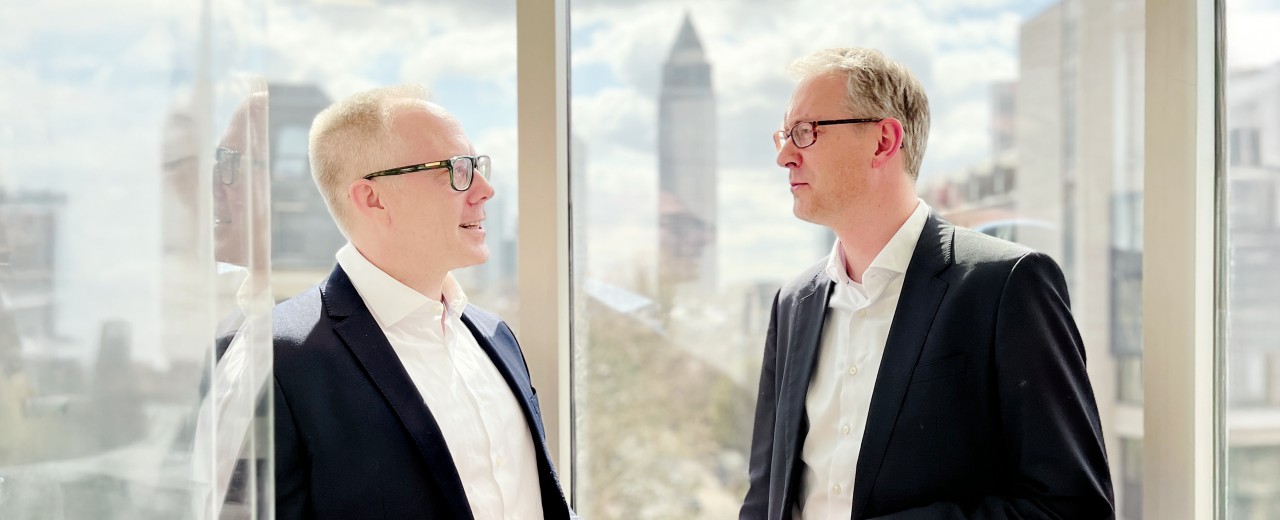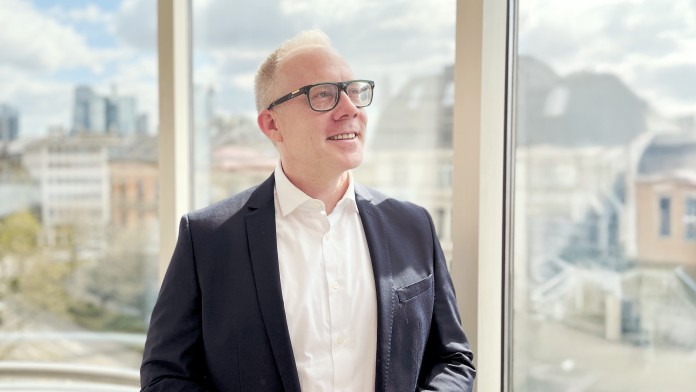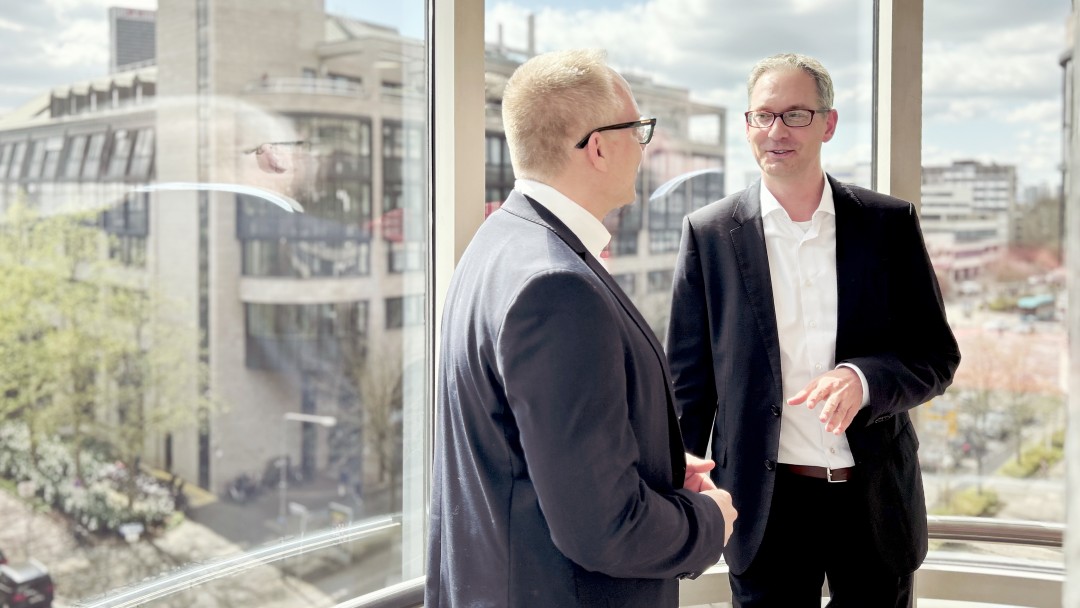Focus topic cooperation
Syndication 2024: How private capital is driving the green transformationKfW IPEX-Bank continued to focus on expanding its syndication business in 2024. Together with Thomas Bernhards and Michael Platzöder, Co-Heads of Syndications, we look back on a year full of highlights. From offshore wind projects to sustainable rail mobility and digital innovations – find out how increasingly, private capital is shaping the financing of the green transformation.

Thomas, we’re sitting here now looking back on the year 2024. When you think about the work done by your team, what were the major highlights for you in terms of KfW IPEX-Bank’s syndication activities?
2024 was a year full of milestones, especially in the area of green transformation. A real highlight was the successful syndication of the Virginia Offshore Wind project with a total volume of EUR 4.2 billion – one of the largest offshore wind projects in the world. In its role as Coordinating Lead Arranger for the consortium, KfW IPEX-Bank made a decisive contribution to achieving financing security for the customer at an early stage, at the same time mobilising large amounts of private capital, particularly from other banking partners. This shows how important a good syndication process can be for the customer, when it comes to realising sustainable projects on a large scale.
Michael, offshore wind is a fascinating topic. Did you focus on any other sectors or technologies during 2024?
Absolutely. Rail mobility was another focal point. For example, we provided growth financing to Railpool, which manages and leases out modern electric locomotives. The rail sector is essential for the transport transition and is also increasingly popular with many institutional investors. At the same time, we are seeing newer growth areas with substantial funding requirements, particularly in the area of digital infrastructure – data centres, and so on.

Thomas, how important is private capital in making the global economy sustainable?
Private capital is crucial! It is impossible to transform the economy so as to achieve climate neutrality and greater social justice without recourse to private funds. Public funds fall far short of what is needed for this purpose. Our job is to get private investors such as pension funds, insurance companies and other banking partners on board, with financing structures tailored to the market participants and attractive conditions. The SunZia project in the US, consisting of a 3.5 GW wind farm and a 550-mile high-voltage transmission line, is a great example of how private capital can be successfully mobilised in a project with an investment volume of more than USD 10 billion.
Thomas, how has the demand for syndicated facilities developed and what role do institutional investors play in this?
Demand remained high in 2024, especially for projects that meet ESG criteria. Institutional investors are specifically looking for sustainable investment opportunities. We forge successful links by structuring and arranging financing with a special focus on sustainability, for example as a green loan or sustainability-linked loan. This further increases demand. As well as institutional investors, banking partners continue to play a major role in our market segment.
And finally: Michael, what are your expectations for syndication in 2025?
I am confident that the positive trend will continue despite geopolitical uncertainties. We expect particularly large volumes in the areas of digital infrastructure, the development of a hydrogen infrastructure and the circular economy. I also believe that governments will increasingly provide incentives to mobilise more private capital – for example through state guarantees or co-financing. The biggest challenge remains to go on increasing the speed of implementation in order to achieve the climate targets.
Thank you, Thomas and Michael, for these fascinating insights and your review of an impressive year 2024!
Thank you, we enjoyed it!

Legal notice:
The information contained in this online Annual Report 2024 is based on KfW IPEX-Bank’s Management Report 2024, which you can download here. Should this online Annual Report 2024, despite the great care taken in preparation of its content, contain any contradictions or errors compared to the Management Report, KfW IPEX-Bank’s Management Report 2024 takes priority.
Share page
To share the content of this page with your network, click on one of the icons below.
Note on data protection: When you share content, your personal data is transferred to the selected network.
Data protection
Alternatively, you can also copy the short link: https://www.kfw-ipex-bank.de/s/enxB5GNn
Copy link Link copied